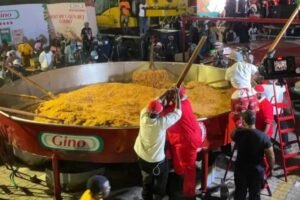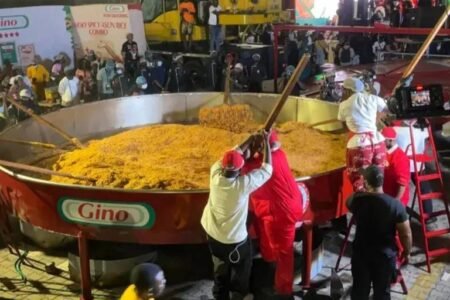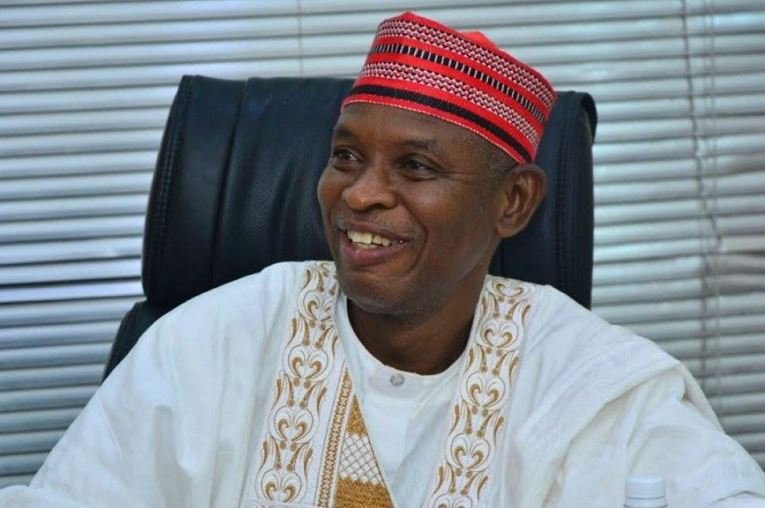A coalition of civil society organisations on Wednesday held a peaceful demonstration in Lagos to protest the alleged forceful displacement of residents and landowners in the Okun Ajah community, reportedly affected by the Lagos-Calabar Coastal Highway project.
The protest, Chronicle NG gathered, took place at the annex office of the Federal Ministry of Works at Tafawa Balewa Square.
Among their demands was the release of an activist, identified simply as Obanla, who was allegedly detained during a land clearance operation connected to the ongoing highway construction.
Coordinator of the coalition, Shina Loremikan, accused government officials and private developers involved in the project of intimidation and abuse of power.
He claimed that Obanla was abducted by military personnel at a disputed site identified as the Winhomes project area.
He stated, “The current realignment of the highway has led to mass displacement without adequate consultation or compensation. We are not comfortable with the masking of land grabbing as national infrastructure development and using state apparatus to intimidate and dispossess lawful landowners.”
He further alleged, “The minister and his agents are using government power to oppress the people. What is happening in Okun Ajah is not just development, it’s a calculated dispossession of citizens from their ancestral lands.”
Regarding Obanla’s disappearance, Loremikan explained that efforts to locate him had been unsuccessful.
He said, “Since that day, no one from his family, friends, or members of the community has seen or heard from him. We have visited several police stations and the state command, but they all deny having him in custody.”
He warned that if Obanla was not released, the coalition would escalate its actions, including taking the matter to military authorities.
“As we speak, there is a simultaneous protest happening in Abuja. This impunity must stop. No one has the legal authority to abduct a citizen simply for speaking the truth,” Loremikan added.
The demonstrators pledged to continue their protests until their demands were met, emphasizing that the movement was not solely about Obanla’s case but also a stand for justice on behalf of all affected communities.
As part of their campaign, the coalition submitted a formal petition to the Ministry of Works, listing key demands such as compensation for displaced individuals, justice for affected residents, and an end to what they described as “militarised evictions.”
A representative of the Minister for Works received the protesters’ petition and assured the group that their concerns would be forwarded to the appropriate authorities.









